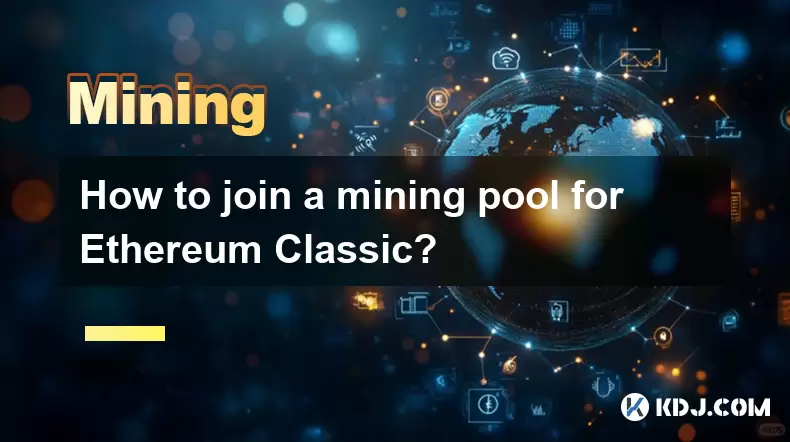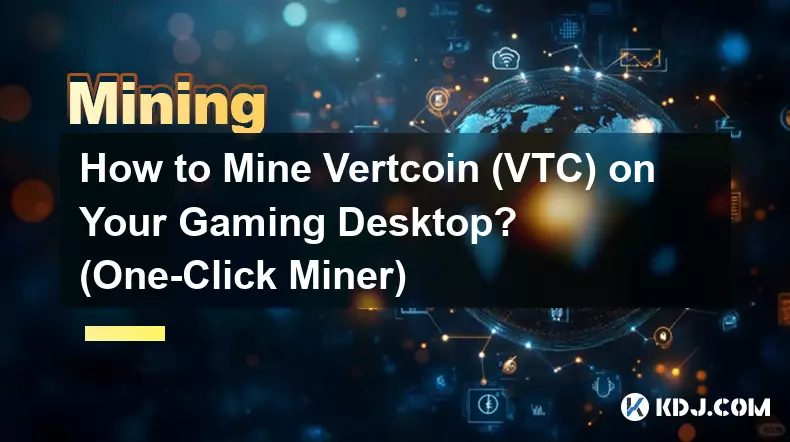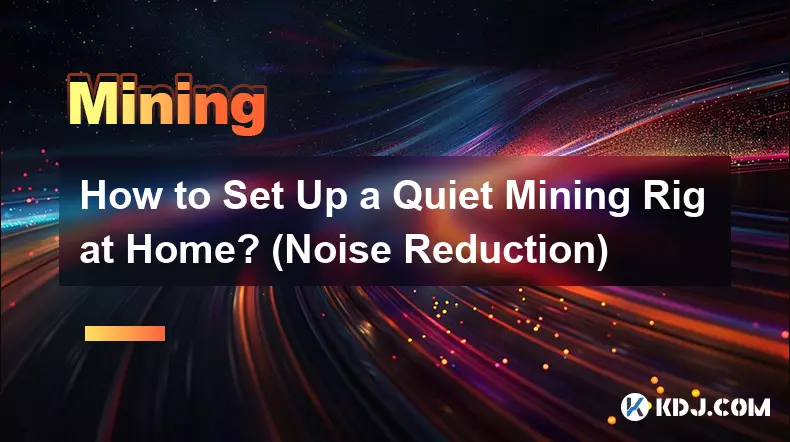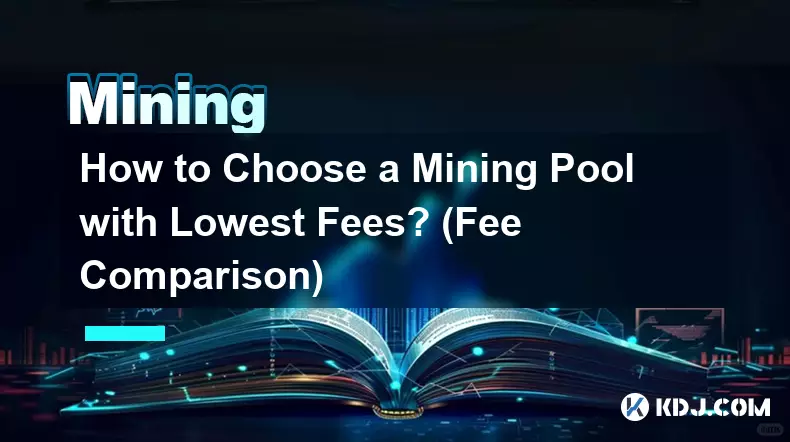-
 bitcoin
bitcoin $87959.907984 USD
1.34% -
 ethereum
ethereum $2920.497338 USD
3.04% -
 tether
tether $0.999775 USD
0.00% -
 xrp
xrp $2.237324 USD
8.12% -
 bnb
bnb $860.243768 USD
0.90% -
 solana
solana $138.089498 USD
5.43% -
 usd-coin
usd-coin $0.999807 USD
0.01% -
 tron
tron $0.272801 USD
-1.53% -
 dogecoin
dogecoin $0.150904 USD
2.96% -
 cardano
cardano $0.421635 USD
1.97% -
 hyperliquid
hyperliquid $32.152445 USD
2.23% -
 bitcoin-cash
bitcoin-cash $533.301069 USD
-1.94% -
 chainlink
chainlink $12.953417 USD
2.68% -
 unus-sed-leo
unus-sed-leo $9.535951 USD
0.73% -
 zcash
zcash $521.483386 USD
-2.87%
How to join a mining pool for Ethereum Classic?
Joining an Ethereum Classic mining pool increases your chances of earning consistent rewards by combining computational resources with other miners.
Jul 05, 2025 at 07:31 pm

Understanding Ethereum Classic Mining Pools
Ethereum Classic (ETC) is a decentralized blockchain platform that allows users to mine its native cryptocurrency, ETC. Mining pools are groups of miners who combine their computational resources to increase the chances of successfully mining blocks and receiving rewards. Joining a mining pool can be an efficient way for individual miners to earn more consistent returns compared to solo mining.
Before joining a pool, it's important to understand how these pools operate. Most mining pools distribute rewards based on the amount of work contributed by each miner. The two most common reward systems are Pay-per-Share (PPS) and Proportional (PROP). Each has its own advantages and risks, so choosing the right one depends on your mining goals and risk tolerance.
Selecting the Right Mining Pool for You
There are several well-known mining pools for Ethereum Classic. Some of the most popular ones include:
- ETC Core
- SparkPool
- F2Pool
- Nanopool
Each pool has different features such as server locations, fee structures, payout thresholds, and user interfaces. For example, SparkPool offers high uptime and good performance metrics, while Nanopool provides a user-friendly dashboard and reliable payouts.
When selecting a pool, consider the following factors:
- Pool size and hash rate: Larger pools offer more frequent payouts but may have higher fees.
- Fee structure: Most pools charge between 0% to 1% in fees.
- Payout method: Look into whether the pool uses PPS, PROP, or other models.
- Server location: Proximity to servers affects latency and mining efficiency.
Setting Up Your Mining Software
To join a mining pool, you need to set up mining software compatible with Ethereum Classic. The most widely used software includes:
- Claymore’s Dual Ethereum Miner
- PhoenixMiner
- NBMiner
Once you’ve downloaded and installed the appropriate software, you'll need to configure it with your mining pool credentials. Here's how:
- Locate the configuration file (usually a
.bator.conffile). - Open it with a text editor like Notepad.
- Replace the placeholder pool address with the actual server URL from your chosen pool.
- Insert your wallet address and a worker name (you can choose any identifier).
- Save the changes and run the file to start mining.
For example, if using PhoenixMiner, your command line might look like this:
PhoenixMiner.exe -pool etc.etc-pool.com:4444 -wal YOUR_WALLET_ADDRESS -pass x -worker worker1Make sure all paths and parameters are correct to avoid connection issues.
Creating a Wallet Address for Mining Rewards
Before connecting to a mining pool, you must have a wallet address where your mining rewards will be sent. You can use wallets like:
- MetaMask
- Trust Wallet
- ETC-specific wallets like Electrum-ETC
To create a wallet:
- Download and install the wallet application.
- Create a new wallet and securely store the recovery phrase.
- Copy the public wallet address provided by the wallet.
This address will be used when configuring your mining software and registering with the pool. Make sure it is accurate; otherwise, your mined ETC could be lost permanently.
Registering and Monitoring on the Mining Pool Platform
Most mining pools require you to register an account to monitor your mining activity and receive payouts. To do this:
- Visit the pool’s official website.
- Click on “Sign Up” or “Register.”
- Enter your email address and create a password.
- Confirm your email through the link sent to your inbox.
After registration, log in and navigate to the dashboard. There, you’ll see options to add your miner(s) and view statistics such as:
- Hash rate
- Uptime
- Estimated earnings
- Recent payouts
Some pools allow you to set a minimum payout threshold, meaning you won’t receive payments until your balance reaches a certain level (e.g., 0.1 ETC). This helps reduce transaction fees.
Troubleshooting Common Issues When Joining a Pool
You may encounter some issues when connecting to a mining pool. Here are common problems and how to resolve them:
- Connection errors: Double-check the pool address and port number in your mining software.
- Low hash rate: Ensure your GPU drivers are up to date and your hardware is functioning properly.
- No shares accepted: Verify that your wallet address and worker name are correctly entered.
- Delayed payouts: Check if the pool has a minimum payout requirement or is experiencing delays.
If you're still having trouble, consult the mining pool’s support documentation or reach out to their customer service via live chat or email.
Frequently Asked Questions
Q: Can I switch mining pools after joining one?Yes, you can switch pools at any time. Simply update your mining software configuration with the new pool’s server address and restart the miner.
Q: What happens if my miner goes offline?Your mining progress will pause, but once reconnected, your miner will resume submitting shares. Extended downtime may affect your overall contribution to the pool.
Q: How often are payouts made?It depends on the pool and your configured payout settings. Some pools distribute rewards daily, while others wait until you reach a specific balance.
Q: Is it possible to mine Ethereum Classic without joining a pool?Technically yes, but solo mining is much less predictable and requires significant computational power to compete with large mining farms.
Disclaimer:info@kdj.com
The information provided is not trading advice. kdj.com does not assume any responsibility for any investments made based on the information provided in this article. Cryptocurrencies are highly volatile and it is highly recommended that you invest with caution after thorough research!
If you believe that the content used on this website infringes your copyright, please contact us immediately (info@kdj.com) and we will delete it promptly.
- Zama Lists on Multiple Exchanges, Airdrop Window Opens Amidst Strong Auction Performance
- 2026-02-02 19:05:01
- Bitcoin's Plunge Spurs Whale Activity Amidst Liquidity Crunch: A New York Take
- 2026-02-02 19:10:02
- Token Market Evolution: Digital Finance and RIV Files Usher in Era of Institutional Trust
- 2026-02-02 19:05:01
- ZAMA Token's Imminent Launch: A Price Prediction and Analysis Amidst Shifting Crypto Tides
- 2026-02-02 19:00:02
- Binance's SAFU Fund Goes Bitcoin-Heavy: A Bold Move for User Protection and Bitcoin Investment
- 2026-02-02 19:00:02
- Bitcoin's Big Dip: From Peak Hopes to Present Plunge
- 2026-02-02 18:55:01
Related knowledge

How to Spot a Cloud Mining Scam? (Red Flags to Watch For)
Feb 02,2026 at 08:20am
Unrealistic Return Promises1. Platforms advertising guaranteed daily returns above 1–2% without disclosing underlying hardware, electricity costs, or ...

How to Earn Passive Income with DePIN Mining? (New Trend 2026)
Feb 01,2026 at 12:40pm
Understanding DePIN Mining Mechanics1. DePIN mining relies on real-world infrastructure participation rather than computational hashing. Users deploy ...

How to Mine Vertcoin (VTC) on Your Gaming Desktop? (One-Click Miner)
Feb 02,2026 at 03:39am
Understanding Vertcoin's Mining Algorithm1. Vertcoin uses the Verthash algorithm, which is intentionally memory-hard and designed to resist ASIC domin...

How to Set Up a Quiet Mining Rig at Home? (Noise Reduction)
Feb 01,2026 at 11:00pm
Acoustic Enclosure Design1. Use rigid, dense materials such as MDF or acoustic-grade plywood for the enclosure walls to block mid-to-high frequency no...

How to Choose a Mining Pool with Lowest Fees? (Fee Comparison)
Feb 02,2026 at 02:39am
Understanding Mining Pool Fee Structures1. Pool operators charge fees to cover infrastructure, maintenance, and administrative costs. These fees manif...

How to Mine Bitcoin on Mac (M1/M2/M3)? (Software Tutorial)
Feb 01,2026 at 07:19pm
Understanding Bitcoin Mining on Apple Silicon1. Bitcoin mining relies on solving cryptographic puzzles using computational power, and Apple’s M1, M2, ...

How to Spot a Cloud Mining Scam? (Red Flags to Watch For)
Feb 02,2026 at 08:20am
Unrealistic Return Promises1. Platforms advertising guaranteed daily returns above 1–2% without disclosing underlying hardware, electricity costs, or ...

How to Earn Passive Income with DePIN Mining? (New Trend 2026)
Feb 01,2026 at 12:40pm
Understanding DePIN Mining Mechanics1. DePIN mining relies on real-world infrastructure participation rather than computational hashing. Users deploy ...

How to Mine Vertcoin (VTC) on Your Gaming Desktop? (One-Click Miner)
Feb 02,2026 at 03:39am
Understanding Vertcoin's Mining Algorithm1. Vertcoin uses the Verthash algorithm, which is intentionally memory-hard and designed to resist ASIC domin...

How to Set Up a Quiet Mining Rig at Home? (Noise Reduction)
Feb 01,2026 at 11:00pm
Acoustic Enclosure Design1. Use rigid, dense materials such as MDF or acoustic-grade plywood for the enclosure walls to block mid-to-high frequency no...

How to Choose a Mining Pool with Lowest Fees? (Fee Comparison)
Feb 02,2026 at 02:39am
Understanding Mining Pool Fee Structures1. Pool operators charge fees to cover infrastructure, maintenance, and administrative costs. These fees manif...

How to Mine Bitcoin on Mac (M1/M2/M3)? (Software Tutorial)
Feb 01,2026 at 07:19pm
Understanding Bitcoin Mining on Apple Silicon1. Bitcoin mining relies on solving cryptographic puzzles using computational power, and Apple’s M1, M2, ...
See all articles










































































